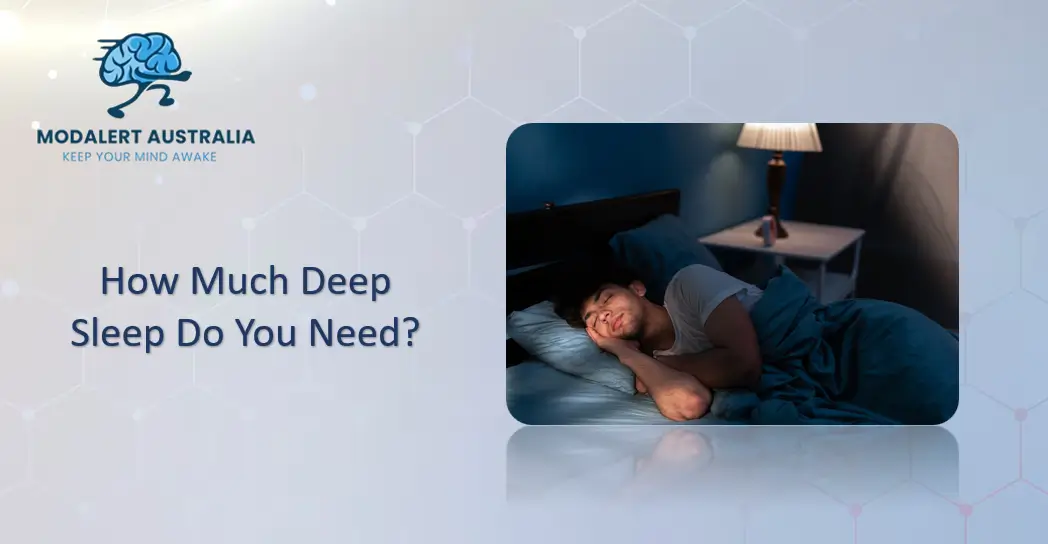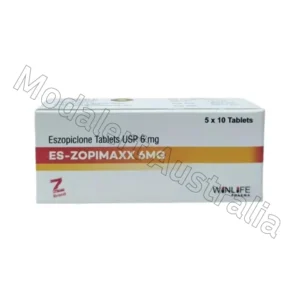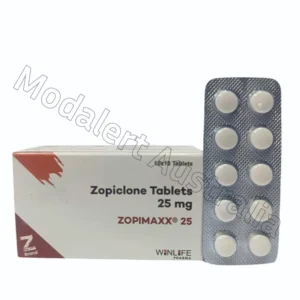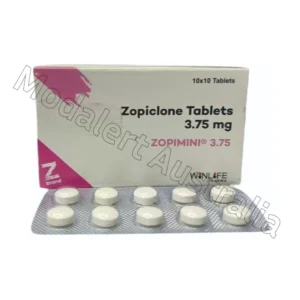How Much Deep Sleep Do You Need?

Sleep is the most essential element of good health, but most people don’t realize the significance of deep sleep. However, when most people are focused on obtaining “enough hours” of sleep, the quality of these hours, particularly the amount of time during deep sleep, plays a vital role in mental and physical health and emotional well-being.
How much sleep are you getting? What happens if you fail to get enough sleep? How can you increase your sleeping quality naturally?
This complete guide will cover the essential information you require about the benefits of deep sleep, as well as its benefits, how much it is necessary, and practical ways to improve it.
What Is Deep Sleep?
Sleep deep, called Slow Wave Sleep (SWS) or Stage 3 of non-REM sleep, is the restorative stage. In this phase, the brain’s activity slows down dramatically, and the body is focused on:
- Physical recuperation (muscle repair, growth of tissue)
- Stimulating the immune system
- Memory consolidation
- Regulation of hormones (growth hormone releases)
Unlike REM sleep (where dreaming occurs), deep sleep is a time of near-unconsciousness, making it difficult to wake someone in this stage.
Deep sleep (Stage 3 NREM) is characterized by:
- Slow brain waves (delta waves)
- Breathing and heart rate are reduced
- Relaxation of muscles and repair of tissues
- It is difficult to wake up (disorientation when suddenly awakened)
Why Is Deep Sleep Important?
Physical Restoration
- Muscle Growth & Repair: Human growth hormone (HGH) releases, helping to repair tissue.
- Bone and Cell Regeneration: Critical for healing and recovering.
Cognitive Function and Memory
- Memory Consolidation: Sleeping deep helps transfer memories from short-term to long-term.
- Brain Detoxification: The lymphatic system cleanses the body of toxic substances like beta-amyloid (linked to Alzheimer’s disease).
Immune System Support
Enhances immune function, which reduces risk of contracting an infection.
Emotional Regulation
Sleep deprivation is connected to mood disorders, such as anxiety and depression.
The Science behind Deep Sleep
Brain Activity during Deep Sleep
- Delta waves are the most dominant (0.5-2 Hz frequency) and indicate the most deep rest stage.
- Reduction in the ability to respond to external stimuli.
Physiological Changes
- Low heart rate and lower blood pressure
- Breathing is slow
- A boost in blood flow to the muscles
- Human growth hormone release (HGH)
Deep Sleep vs. REM sleep
| Aspect | Deep Sleep | REM Sleep |
| Brain Waves | Delta waves (slow) | Beta waves (active) |
| Body Movement | Minimal | Paralysis (to prevent acting out dreams) |
| Function | Physical repair | Memory, learning, emotional processing |
| Dreaming | Rare | Vivid dreams |
How Much Deep Sleep Do You Need?
General Guidelines by Age
Sleep quality decreases as you age:
| Age Group | Total Sleep Needed | Deep Sleep (Approx.) |
| Newborns (0-3 months) | 14–17 hours | 4–6 hours |
| Infants (4-12 months) | 12–16 hours | 3–5 hours |
| Toddlers (1-2 years) | 11–14 hours | 2.5–4 hours |
| Preschoolers (3-5 years) | 10–13 hours | 2–3.5 hours |
| School-age (6-12 years) | 9–12 hours | 1.5–3 hours |
| Teenagers (13-18 years) | 8–10 hours | 1.5–2.5 hours |
| Adults (18-60 years) | 7–9 hours | 1–2 hours (20% of sleep) |
| Older Adults (61+) | 7–8 hours | 0.5–1.5 hours |
Why Deep Sleep Declines With Age
- A decrease in the production of growth hormone
- Brain structure changes (fewer Slow-wave oscillations)
- More frequent sleep interruptions (waking up frequently)
Key Takeaway:
- Adults require at least 1-2 hours of restful sleep each evening (about 20% of the total sleeping time).
- Sleep quality decreases with the advancing years because of fluctuations in brainwave activity.
Factors Affecting Deep Sleep Duration
- Age (older adults get less deep sleep)
- Sleep Disorders (e.g., sleep apnea disrupts deep sleep)
- Alcohol & Caffeine (reduce deep sleep quality)
- Stress and Anxiety (increase sleeping light but at the expense of deep sleep)
The Role of Deep Sleep in Health
Physical Health Benefits
- Muscle Repair & Growth (HGH release)
- Enhances Immune System (Cytokine production)
- Regulates Metabolism (Reduces diabetes risk)
- Helps Heart Health (Lowers blood pressure)
Mental & Cognitive Benefits
- Memory Consolidation (Transfers short-term memories to long-term ones)
- Emotional Regulating (Reduces anxiety and stress)
- The process of brain detoxification (Glymphatic system eliminates the body of toxins)
Consequences of Deep Sleep Deprivation
- Greater risk of getting Alzheimer’s (beta-amyloid build-up)
- Increased levels of inflammation (linked to chronic illnesses)
- Impairment in cognitive function (poor focus, memory problems)
- The metabolic disorder and weight gain
Factors That Affect Deep Sleep
Lifestyle Factors
- Alcohol & caffeine (disrupt sleep cycles)
- Irregular sleep schedule (confuses the circadian rhythm)
- Sedentary lifestyle (reduces deep sleep drive)
Medical Conditions
- Sleep apnea (fragments deep sleep)
- Chronic pain (prevents deep sleep entry)
- Anxiety and depression (alters the sleep structure)
Environmental Factors
- Noise & light pollution (disrupts deep sleep)
- The temperature of your room (too warm or cold influences the quality of sleep)
Signs you’re Not Getting Enough Deep Sleep
- Tired and groggy despite having a long night’s rest
- Infrequent sickness (weakened immunity)
- Problems with memory and brain fog
- Recovery of muscle after exercise is slow
- The mood swings and irritability
Common Disorders That Affect Deep Sleep
- Sleep Apnea: Sleep disturbances due to breathing disruptions.
- Insomnia: Lowers the amount of sleep you get, which includes deep sleep.
- Restless Legs Syndrome (RLS): Involuntary movements that prevent the body from falling asleep.
How to Measure Deep Sleep
Wearable Sleep Trackers
- Fitbit, Oura Ring, Whoop (estimate deep sleep via heart rate & movement)
- Apple Watch (uses accelerometer & heart rate variation)
Polysomnography (Sleep Lab Study)
- Gold is a gold standard for the measurement of sleep
- The brain tracks the brainwaves (EEG), Eye movement, and the activity of muscles
Smartphone Apps
Sleep Cycle, Pillow (use microphone & movement detection)
(Note: Wearables provide estimates, not medical-grade data.)
Medical and Supplemental Interventions
- Prescription Sleep Aids (e.g., Trazodone) – It may increase sleep but can cause adverse side effects.
- Natural Supplements (Melatonin, Glycine, GABA) – Support deeper sleep cycles.
-
Zopiclone 10 Mg
$196.56 $926.64Price range: $196.56 through $926.64 -
Es-Zopimaxx 6 Mg (Eszopiclone)
$191.30 $1,114.30Price range: $191.30 through $1,114.30 -
Zopiclone 25 mg Tablet
$257.40 $2,168.40Price range: $257.40 through $2,168.40 -
Zopiclone 3.75 Mg
$137.28 $648.96Price range: $137.28 through $648.96
Tips to Increase Deep Sleep Naturally
Sleep Hygiene Practices
- Make sure you adhere to a strict routine of sleep
- Avoid caffeine & alcohol before bed
- Make sure the bedroom is cool (60-67°F (15-19°C)
- Utilize blackout curtains and white sound
Diet & Supplements
- Magnesium-rich foods (spinach, nuts, seeds)
- Tart Cherry Juice (natural source of melatonin)
- Supplements of L-theanine and Glycine
Exercise & Relaxation Techniques
- Moderate aerobic activity (but not at a time that is too close to nighttime)
- Exercises for meditation and deep breathing
- Reading (reduces the stress before going to bed)
Myths and Misconceptions about Deep Sleep
- “A deeper sleep is always more beneficial.” →A prolonged period of sleep could indicate problems with your health.
- “It is possible to catch up when you’re in deep sleep.” →It isn’t possible to fully pay back.
- “Alcohol helps deep sleep.” →The disorder disrupts sleep cycles.
When to Seek Medical Help
If you have:
- Chronic insomnia
- Snoring and gasping loudly (signs of sleep apnea)
- Excessive daytime sleepiness
→See a sleep expert to get a correct diagnosis.
Conclusion
A deep sleep is vital to recovering your physical health and improving mental well-being and clarity. Although adults generally require between 2 to 3 hours of sleep per night, a myriad of variables–such as lifestyle, age, and medical issues can affect this vital sleep phase.
By enhancing your sleep quality and eating habits and managing stress, you can naturally improve your sleeping. It could be needed if you are experiencing sleep issues needing professional advice.









